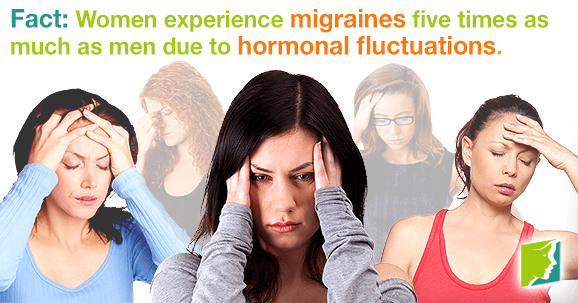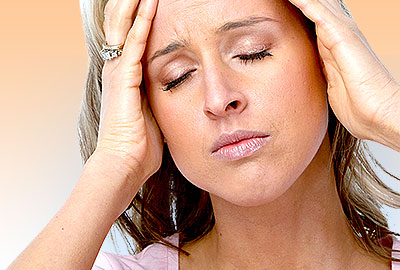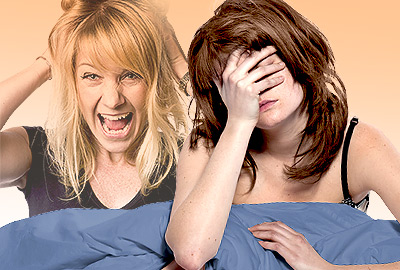The main cause of headaches during menopause is hormonal fluctuations. Women are more vulnerable to experiencing headaches with a higher frequency and intensity as they approach menopause. Migraines, a specific type of headache, are generally described as a recurrent, throbbing pain that starts on one side of the head, accompanied by sensitivity to light and sound. They can last anywhere from a few hours to a few days. Keep reading to learn more about menopausal headaches, why women are affected by them, and ways to naturally treat them.
MYTH: Men and Women Experience Migraines Equally
FACT: Women Experience Migraines Five Times as Much as Men
It has been shown that women experience migraine headaches five times more than men. The reason for this phenomenon can be directly linked to the hormonal fluctuations experienced by women during menstruation, pregnancy, and menopause. These fluctuations can cause erratic blood vessel activity, potentially resulting in inflammation or pain.
MYTH: Caffeine Does Not Contribute to Headaches
FACT: Caffeine, Alcohol, and Stress Are Directly Linked to Headaches
Stress, anxiety, insufficient sleep, poor diet, and drinking too much alcohol or caffeine can induce headaches during menopause. Low-impact exercises like yoga, walking, and swimming can help boost energy and prevent menopausal headaches. Exercise can also help cut back on caffeine consumption by boosting energy and mood. It is also recommended to maintain a healthy diet to keep blood sugar levels up in order to prevent caffeine cravings and headaches.
MYTH: All Women Experience Headaches during Menopause
FACT: Many Women Get Headaches during Menopause, but Not Every Woman
About 70% of women experience headaches at some point of their lives, and about 10% of those women will experience severe, debilitating headaches. The severity and frequency of headaches during menopause will depend on genetics, lifestyle, and the presence of underlying conditions. Headaches are not a symptom of menopause for every woman.
MYTH: Menopausal Headaches Disappear with Age
FACT: Women Still Experience Headaches during Postmenopause
Headaches tend to decrease in frequency and severity during postmenopause because there is no longer a fluctuation of hormones, so they subside to a lower level. As the main cause of headaches in women is shifts in hormone levels, it makes sense that there would be some relief after hormones have leveled out. As hormones have decreased during menopause, however, women may continue to have headaches as they get older.
MYTH: Women Need to Take Hormone Replacement Therapy to Treat Symptoms of Menopause
FACT: Hormone Replacement Therapy Is Not Right for Every Woman
The number of women taking hormone replacement therapy (HRT) spiked in the 1960s when it was thought to be a cure-all for menopause symptoms. However, since then, evidence has surfaced that HRT can increase the risk of heart disease, stroke, breast cancer, and blood clots. Today, doctors are very cautious about prescribing HRT for women because of its possibly dangerous side effects.
Headaches during menopause affect most women, and are primarily caused by hormone fluctuations. Fortunately, there are several different ways to prevent and treat these symptoms. These include getting proper sleep and exercise, maintaining a proper diet, avoiding triggers like alcohol and caffeine, and reducing stress. If headaches persist or worsen, you should talk to your doctor about other treatment options.
Sources
- National Health Service UK. (2015). Hormones headaches. Retrieved February 17, 2016, from http://www.nhs.uk/livewell/headaches/pages/hormonalheadaches.aspx
- Office on Women's Health. (2012). Migraine fact sheet. Retrieved February 17, 2016, from http://www.womenshealth.gov/publications/our-publications/fact-sheet/migraine.html#n




